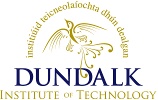Malone, Luke and Kearney, Daithi (2023) Resonance and Post-Otherness in Cartoon Saloon’s Wolfwalkers (2020). Confluente, 15. pp. 17-33. ISSN 2344-6072
|
PDF
- Submitted Version
Download (253kB) |
Abstract
Influenced by colonial relations and post-colonialism, the contrast between Irish and (Anglo-) Irish or English characters has been a focal point in twentieth century Irish literature. From racist nineteenth cartoons in Punch magazine depicting the Irish as monkeys, to the themes of isolation that pervade the work of Anglo-Irish writers, otherness has been central to these representations. Political and economic developments have created new contexts for representation in recent decades: the 1998 Good Friday Agreement and subsequent end to a period of violent sectarian conflict known as the Troubles, the Celtic Tiger period of economic growth and prosperity, and modern social developments that include referenda on abortion and gay marriage, have changed both the experience of living in Ireland and the expression of Irish identity. Consequently, contemporary Irish identity seeks to include an increasingly diverse population and focuses less on Irish/English binaries, instead considering urban/rural differences, environmental concerns, and the impact of globalisation. Cartoon Saloon’s Wolfwalkers (2020) presents one opportunity to consider ‘post-otherness’ within Irish storytelling and cinema. Its key protagonists, Mebh Óg MacTíre and Robyn Goodfellowe, strongly resonate with one another despite their cultural differences, forging a bond on their quest to validate their sense of self. They neither share a cultural background nor identify entirely with their respective communities but, in coming together to face existential challenges, the pair become more comfortable with their own identities. Blurring the definition of and distinction between groups, it becomes difficult to establish who is the Other. Wolfwalkers presents characters and themes akin to Anglo-Irish literature, but responding to their lived experience as earlier writers did theirs, the directors rework Irish tropes for a contemporary audience. By presenting historically inspired narratives, the film shows new perspectives on character development, utilising child heroes in a way that differs from earlier approaches. Representations of colonialism and English-Irish duality from nineteenth- and early twentieth-century literature are re-imagined here, influenced by post-nationalist thinking and the efforts of a transnational team of artists targeting an international audience. There are also elements of the film that reflect postcolonialism and orientalism, complicating the film’s depictions of Irishness. An analysis of Wolfwalkers demonstrates that otherness is highly subjective, and when Robyn and Mebh cross the boundary between their two worlds, they reject the illusion of difference.
| Item Type: | Article |
|---|---|
| Uncontrolled Keywords: | Irish folklore, animation, Cartoon Saloon, post-Otherness, Anglo-Irish Literature |
| Subjects: | Arts and Humanities Arts and Humanities > Film and Media Studies |
| Research Centres: | Centre for Creative Arts, Media & Music |
| Depositing User: | David Kearney |
| Date Deposited: | 23 Apr 2024 13:09 |
| Last Modified: | 23 Apr 2024 13:09 |
| License: | Creative Commons: Attribution-Noncommercial-Share Alike 4.0 |
| URI: | https://eprints.dkit.ie/id/eprint/878 |
Actions (login required)
 |
View Item |
Downloads
Downloads per month over past year

